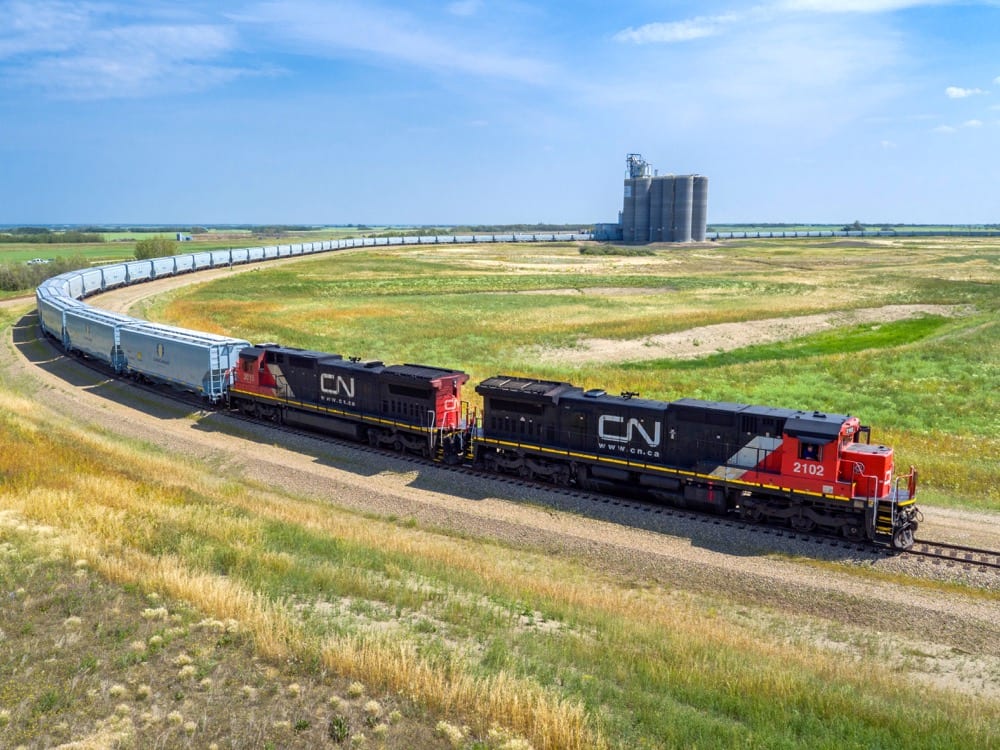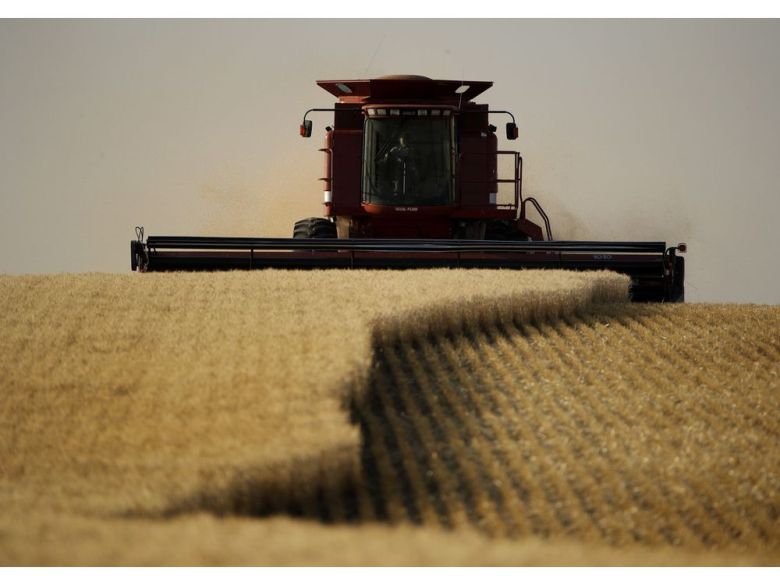CN Strike Could Hit Country Hard

Thousands of Canadian National Railway workers went on strike Tuesday, threatening a crucial artery for exports of oil, grain, chemicals and minerals and leaving some vulnerable Prairie regions potentially without any mode of commercial transportation
by Naomi Powell – Financial Post
Talks in Montreal were ongoing Tuesday after 3,200 CN conductors, train and yard personnel stopped work at midnight. The company and union have been unable to bridge an impasse on items ranging from pharmaceutical benefits to time-off provisions.
The strike at Canada’s largest railway comes despite a push for a deal by Labour Minister Patty Hajdu and Transport Minister Marc Garneau, who met with union and CN representatives Monday. Union concerns include fatigue, safety and ensuring workers’ breaks aren’t reduced.
Andrew Scheer, leader of the Conservatives, and Alberta Energy Minister Sonya Savage each separately urged Prime Minister Justin Trudeau on Twitter to immediately recall Parliament. Trudeau has said he is not reconvening Parliament until Dec. 5 and the government cannot start the process to force workers back on the job until then.
“Commodities could sit at source, manufacturing could slow for lack of incoming fuel, and prairie provinces’ agriculture could end up at a standstill”
While grain farmers warned of massive economic damage that could result from a service reduction during peak shipping season, mining industry leaders foresaw layoffs and a threat to Canada’s reputation as a reliable trading partner.
A rail stoppage impacts both the ability of companies to deliver fuel and other inputs to their operations and to move mineral products and by-products out to customers.
“This strike will result in a severe reduction or elimination of railway capacity and will trigger the closure of mines with concurrent lay-offs of thousands of employees beginning in a matter of days,” Pierre Gratton, chief executive of the Mining Association of Canada, said in a statement.
Should the strike continue, Canada’s wheat and oilseed farmers may have no access to rail cars on which to ship their crops out for export.Charlie Riedel / THE ASSOCIATED PRESS
He urged the government to impose binding arbitration on current and future labour disruptions involving Class 1 railroads.
Past strikes at CN and Canadian Pacific, the country’s second-largest railway, have tended to be brief, ending in a few days or less after back-to-work legislation was threatened or imposed. But the political calendar in Ottawa could make that solution difficult to implement this time around, said Doug Porter, chief economist at BMO Capital Markets.
“I am concerned this one will be a different animal because Parliament is not sitting,” said Porter, adding the lack of a recent extended rail strike makes estimating the economic impact difficult. “The fact that we are in a minority government situation and we haven’t even had a throne speech really complicates the timing.”
CN will likely be able to fill about 60 per cent of the lost conductor jobs with office managers and other workers that hold those certifications, limiting the impact on the railway, economists at CIBC World Markets said in a note.
“We therefore don’t see a material impact on GDP at this point,” CIBC economist Katherine Judge wrote.
The strike comes during peak shipping season for wheat and canola farmers. Canada’s two largest commodity exports are typically harvested in September and October and transported via rail to shipping ports in Vancouver and Prince Rupert, B.C. There, they are transferred onto large vessels and shipped to key markets including China, Japan and Indonesia.
With little storage available at the ports, farmers rely on CN and CP to continuously move grains on most days of the year. Indeed, during the current shipping season, CN alone deploys about 5,600 rail cars a week for this purpose, said Tom Steve, general manager of the Alberta Wheat Commission.
“That’s over half a million tonnes of grain that won’t move if those cars aren’t able to be delivered into the system,” Steve said.
This year’s wheat and canola harvests have been delayed due to heavy snowfall across all three Prairie provinces, he added, leaving a significant amount of the crop under a blanket of snow. Farmers have also been struggling to dry canola and wheat due to unusually wet conditions.
“(Farmers) may not have harvested the crop yet and what they do have, well, if they can’t deliver it, they’re not paid,” Steve said. “So even a one-week interruption of rail service would be extremely concerning to us.”
Some northern Prairie communities that count canola farming and forestry among their most important industries are serviced entirely by CN. Companies in the Peace River region of northern Alberta and British Columbia, for instance, rely on CN to ship farm and forestry products, said Ward Toma, general manager of Alberta Canola.
“There’s a lot of agricultural acreage up there and a good million and a half acres of canola, most of it still under the snow,” he said. “The potential is for massive economic harm.”
Canada will export 21 million tonnes of wheat this year and about nine million tonnes of canola seed.
Catching up on shipments of commodities after rail service is disrupted is extremely difficult given the limited capacity in the system, said Neil Townsend, a senior analyst at FarmLink Marketing Solutions.
“There’s only so many trains that can go through the mountains in British Columbia,” he said. “You can’t just double them. So that’s our constraint. If we miss a week we never get it back.”
Canadian steelmakers rely on rail to supply iron ore to their mills and to ship finished steel products out. Unlike other industries, steelmakers have the option of using other forms of shipping.
“But will there be supply when so many other industries are trying to do the same thing?” said Catherine Cobden, president of the Canadian Steel Producers’ Association. “That’s how critical the railroad is. If this goes on for any amount of time it could impact our members profoundly.”
The Canadian Association of Petroleum Producers said maintaining rail was particularly important given the shortage of pipeline capacity.
“CN Rail regularly ships in excess of 170,000 barrels of Western Canadian oil per day,” Savage said in a statement. “Any disruption in shipments would have serious consequences for an economy that is already dealing with severe bottlenecks due to cancelled and delayed pipelines. Alberta cannot see further restrictions on our ability to export our product.”
A strike may temporarily constrain CN’s volumes, but will not likely have a meaningful long-term impact on the company’s earnings, Credit Suisse analysts said in a research note on Monday.
With files from Reuters













